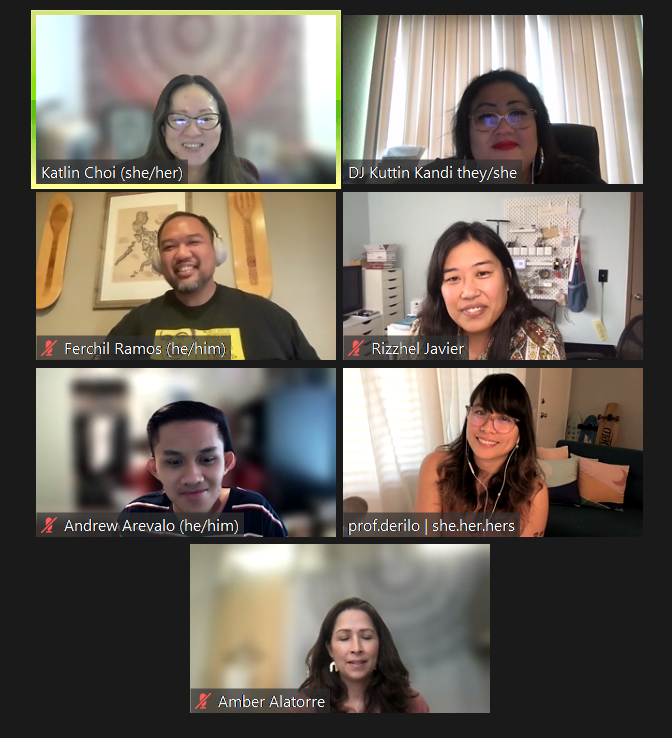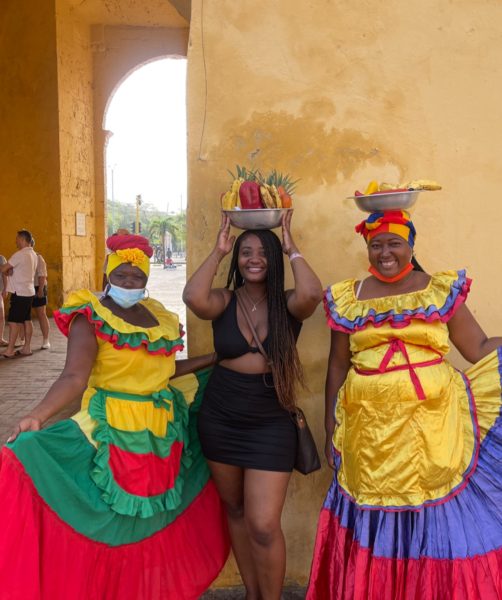On Monday, September 27th, Mesa College’s Kapwa Learning Community, Asian Pacific Islander American Advisory Committee, and the Work-Based Learning department held the “Careering While Asian Panel”, a forum allowing for Asian Pacific Islander Americans and people of color to advocate for their community, give tips on how they remain their most authentic selves and the obstacles they’ve experienced to get where they are today.
The panel members consisted of three Filipino Americans, Candice Custodio-Tan a.k.a. DJ Kuttin Kandi, Ferchil Ramos, and Rizzhel Javier. All speakers gave listeners a look into their lives and their personal experiences through different lenses.
The “Careering While Asian” Panel was a space for Asian-Americans and people of color to share their experiences of failure, success, mistakes, and ancestral influences that got them to the position they’re in today. The moderator for this event was Andrew Arevalo, a Filipino American sociology student, Kapwa liaison, and a member of the Asian Pacific Diversity Club at Mesa. Arevalo skillfully guided the speakers through multiple topics such as how to deal with racism and sexism in the workplace, where they’ve received the most support over the years, and how they continue to stay motivated through ups and downs.
When asked who or what motivated her to go down the path of community work, Javier, an artist and Managing Director at The AjA Project, explained that her biggest influence was having very few teachers of color throughout her college experience. Having attended college in Northern California, she said she felt “foreign” and even attended classes in ethnic studies where none of her classmates were people of color. She believed that becoming a representative and being the face she never saw, would benefit the students who came after her so they wouldn’t have to have the same experience she did. “My lived experiences in college, I wanted to make sure, I wanted to see more people of color there,” she said. “So I need to be one, and commit to that if that’s something that I want to see myself.”
The lens of Hip-Hop led Custodio-Tan to become an organizer within her community. Custodio-Tan, an original New Yorker and Co-Founder/Executive Director of the Asian Solidarity Collective, “Hip-Hop feminism taught me how to be intersectional, and how to be within the gray areas and to live within the contradictions,” she said. “How I approach life in general, how I work with folks, how I believe in my community…that’s what the Hip-Hop cypher teaches you…it taught me how to be in a cypher with community and bring things to full circle.”
A common theme among the speakers was how they learned to cultivate and maintain their authenticity. Ramos, the Social Media Manager at PolicyLink, spoke about how he values authenticity, and how important it is to stay true to himself. “Whenever I’m in a space even if it’s workwise, if I don’t feel like I can be me, It just feels gross… You’re not happy doing that “thing” anymore, because you can’t express yourself fully, you can’t be accepted fully, you’re othered from the start almost,” he said. “If I feel like I can’t be authentic, I already feel like that’s not the right space for me.” He also acknowledged his privilege as a cisgender able-bodied male, and it leads him to strive for more equity and fairness for everyone.
Custodio-Tan gave insight into her struggles with her mental and physical health, and the support she received from her mother and community that helped her to keep pushing forward. In 2012, Custodio-Tan went through major heart surgery and her community came together in droves. When Colorlines, a daily news site, wrote an article about her condition, this tapped into her vulnerabilities, she didn’t want her business out there for the world to see. But after some reflection, she realized she was tired of “performing” and being perfect all the time. “I’m taking off the mask, I’m done with that,” she said. “It was community that got me there, and it was the community that looked out for me.”
As a first-generation college student, Javier acknowledged her transformation from being a hesitant student who was just “happy to be there,” to becoming a woman who recognized her voice and recognized her right to be in the spaces she worked hard to be in. When asked how she navigates through racism, sexism, and discrimination in the workplace, she said she decided to flip the script when she was in college and began to change her thought process. She never wanted to feel like she couldn’t speak up. “I need to make sure I’m getting the education that I hope for and if I’m not that I’m at least getting to say the things that I want to say in this space where I’m paying for this privilege to be here,” she said. “If there’s not something feeding me, it’s not doing me justice, I can’t help other people in this space.”


